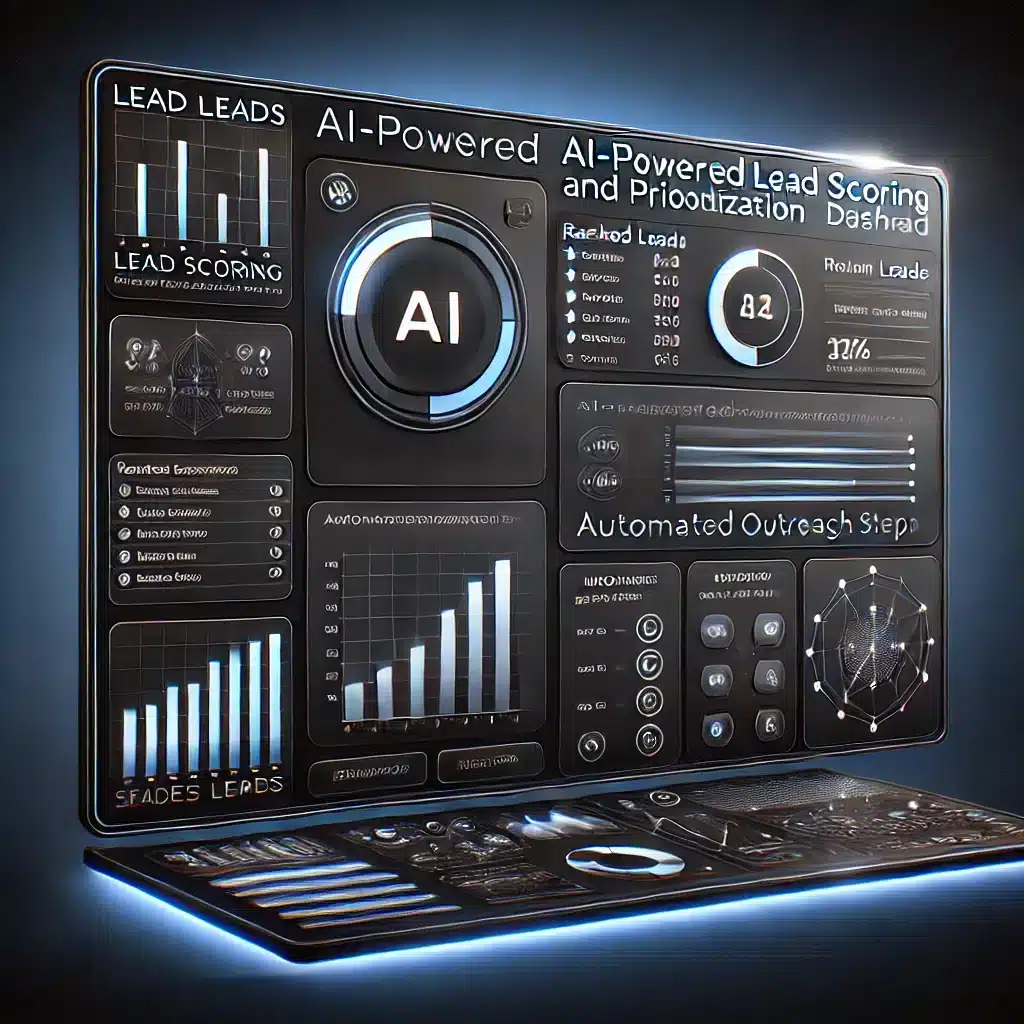In the rapidly evolving landscape of sales, leveraging artificial intelligence (AI) has become a cornerstone for achieving unmatched success. As businesses strive to optimize their sales processes, AI tools are at the forefront, empowering sales teams to streamline operations, personalize customer interactions, and enhance overall productivity. This article delves into how AI transforms the sales environment and highlights best practices for its implementation, focusing on generative AI’s potential to revolutionize lead generation and conversion rates.
How Can AI Tools Transform Your Sales Success?
AI tools have the capability to transform the traditional sales process into a highly efficient and data-driven approach. By harnessing vast amounts of data, AI-driven solutions can help sales professionals identify prospects, tailor their sales strategies, and optimize their interactions. The use of AI algorithms allows sales teams to analyze customer behavior and preferences, ultimately leading to more personalized engagement. Sales representatives can leverage predictive analytics to forecast customer needs, align their pitches accordingly, and deliver an unmatched customer experience.
What Are the Best AI Tools for Sales Teams?
When exploring AI tools for unmatched sales success, several options stand out. HubSpot’s AI, for instance, is designed to empower sales teams by automating repetitive tasks and providing valuable insights through analytics. Other notable tools include Salesforce Einstein and Zoho CRM, which integrate AI to enhance customer relationship management. These ai tools not only streamline the sales process but also provide sales reps with the necessary information to make informed decisions, ultimately boosting productivity and efficiency.
How Do AI-Driven Solutions Optimize Productivity?
AI-driven solutions optimize productivity by automating mundane tasks that often consume valuable time for sales professionals. Tasks such as data entry, lead scoring, and follow-up reminders can be automated through AI systems. This automation allows sales teams to focus on high-value activities, such as nurturing relationships and closing deals. Additionally, by analyzing sales data, AI tools help identify the most promising leads and tailor communications, enabling sales representatives to prioritize their efforts effectively. The result is a significant enhancement in productivity and a more streamlined sales process.
Can AI Personalize Customer Engagement Effectively?
One of the most compelling advantages of AI in sales is its ability to personalize customer engagement effectively. By leveraging AI algorithms to analyze customer interactions and preferences, sales teams can create tailored experiences that resonate with individual customers. For instance, AI tools can suggest personalized content or product recommendations based on previous purchases or browsing behavior. This level of personalization not only strengthens customer relationships but also drives higher conversion rates, making it a vital component of any modern sales strategy.

What Are the Best Practices for Implementing AI in Sales?
Implementing AI in sales requires careful consideration and adherence to best practices. Organizations must first assess their unique needs and select the appropriate AI tools that align with their sales processes. Training is paramount; sales teams must be equipped with the knowledge and skills to effectively use AI tools. Furthermore, continuous monitoring and adjustment of AI strategies are essential to ensure they meet evolving business goals and customer expectations.
How to Train Your Sales Team to Use AI Tools?
Training your sales team to use AI tools effectively is crucial for maximizing the benefits of AI in sales. Organizations should provide comprehensive training sessions that cover the functionalities of the selected AI tools, real-world applications, and best practices. Role-playing scenarios can help sales professionals become comfortable with using AI in customer interactions. Encouraging a culture of continuous learning will also empower sales reps to explore new features and stay updated with advancements in AI technology.
What Metrics Should You Track to Measure AI Success?
To gauge the effectiveness of AI in sales, it is essential to track specific metrics that reflect performance improvements. Key performance indicators (KPIs) may include conversion rates, lead response times, customer satisfaction scores, and overall sales revenue. By analyzing these metrics, businesses can determine how well their AI solutions are performing and make data-driven decisions to refine their strategies. Regularly reviewing these analytics will provide insights into areas for improvement and help maintain a competitive edge.
How to Ensure Smooth Integration of AI with CRM Systems?
Integrating AI with existing CRM systems is a critical step for organizations looking to enhance their sales processes. To ensure smooth integration, businesses should choose AI tools that are compatible with their current CRM platforms. Collaborating with IT professionals during the integration process can help identify potential challenges and streamline the transition. Additionally, providing adequate training to sales teams on how to utilize the integrated systems will further enhance user adoption and maximize the benefits of AI-driven solutions.
How Can Generative AI Enhance Sales Success?
Generative AI represents a cutting-edge advancement in artificial intelligence that can significantly enhance sales success. This technology can create new content, analyze customer feedback, and even generate leads by simulating customer conversations. By utilizing generative AI, sales teams can tailor their outreach efforts and engage prospects in innovative ways that resonate with their needs.
What is Generative AI and How Does It Work in Sales?
Generative AI refers to algorithms that can produce new content or data based on existing information. In the context of sales, generative AI can analyze vast amounts of customer data to generate insights that inform lead generation strategies. For example, it can create personalized email campaigns, draft sales pitches, or even simulate responses to common customer inquiries. By employing generative AI, sales teams can enhance their outreach efforts, making them more relevant and effective in converting leads into customers.
How to Use Generative AI for Lead Generation?
Using generative AI for lead generation involves leveraging its capabilities to analyze customer data and identify potential prospects. By deploying AI tools that employ algorithms to sift through vast amounts of data, sales professionals can uncover leads that may have been overlooked using traditional methods. Generative AI can assist in crafting personalized outreach messages, thereby increasing the chances of engaging potential customers and driving them toward conversion.
Can Generative AI Improve Conversion Rates?
Yes, generative AI can significantly improve conversion rates by providing sales teams with the insights and tools needed to engage customers effectively. By analyzing customer behavior and preferences, generative AI enables sales representatives to create tailored communication strategies that resonate with prospective clients. This personalization not only enhances the customer experience but also fosters trust and increases the likelihood of conversion. Furthermore, the ability to automate certain aspects of lead nurturing ensures that no potential opportunity is missed, contributing to overall sales success.
How to Harness the Power of AI for Unmatched Customer Engagement?
Harnessing the power of AI for unmatched customer engagement requires a strategic approach that focuses on personalization, automation, and analytics. By implementing AI-driven strategies, businesses can create meaningful interactions with customers, ensuring their needs are met in real-time. This not only enhances customer satisfaction but also fosters long-term loyalty, which is crucial for sustained sales success.
What AI Strategies Can Personalize Customer Interactions?
AI strategies that personalize customer interactions encompass utilizing customer data to inform sales approaches. By analyzing past interactions, AI tools can suggest tailored content, product recommendations, and personalized follow-up messages. This level of customization enhances the customer experience, making each interaction feel relevant and valued. Furthermore, AI can segment customers based on their behaviors and preferences, allowing sales teams to target their outreach effectively and improve engagement rates.
How to Automate Customer Engagement with AI?
Automating customer engagement with AI can be achieved by deploying chatbots and automated email marketing systems. These tools can handle routine inquiries, providing instant responses to customers while freeing up sales representatives to focus on more complex tasks. Additionally, automation can be used to schedule follow-up communications, ensuring timely engagement with leads and customers. By streamlining these processes, businesses can maintain a continuous dialogue with their audience, significantly improving customer relationships and retention rates.
What Role Does AI Play in Understanding Customer Analytics?
AI plays a pivotal role in understanding customer analytics by enabling businesses to parse through vast amounts of data and extract meaningful insights. By employing AI algorithms, organizations can identify trends in customer behavior, preferences, and purchasing patterns. This analysis informs sales strategies, helping teams tailor their approaches to meet customer needs effectively. Moreover, understanding customer analytics allows businesses to anticipate future trends and adapt their offerings accordingly, ensuring they remain competitive in a dynamic market.
How Is AI Reshaping the Sales Landscape?
AI is reshaping the sales landscape by introducing new technologies and methodologies that enhance efficiency and effectiveness. As businesses increasingly adopt AI-driven solutions, traditional sales processes are evolving into more data-centric approaches that prioritize customer engagement and personalization. This shift is not only transforming how sales professionals operate but also how customers interact with brands.
What Trends Are Emerging with AI in Sales?
Emerging trends with AI in sales include the rise of predictive analytics, which allows sales teams to forecast customer behavior and tailor their strategies accordingly. Additionally, the integration of AI with CRM systems is becoming more prevalent, enabling sales reps to access valuable insights at their fingertips. The use of chatbots for customer service and engagement is also on the rise, providing instantaneous support and enhancing customer satisfaction.
How Can Businesses Leverage AI to Stay Competitive?
To stay competitive, businesses must leverage AI by investing in the latest tools and technologies that optimize their sales processes. By adopting AI-driven solutions, organizations can enhance their lead generation efforts, improve customer engagement, and streamline their operations. Moreover, staying informed about emerging trends and continuously adapting strategies will enable businesses to harness the power of AI effectively, ensuring they remain at the forefront of their industries.
What Challenges Might You Face When Using AI in Sales?
Despite the numerous benefits of AI in sales, businesses may encounter challenges during its implementation. Resistance to change among sales teams can hinder the adoption of new technologies, making training and education vital. Additionally, ensuring data privacy and security is paramount, particularly when handling sensitive customer information. Organizations must also navigate the complexities of integrating AI with existing systems, which requires careful planning and execution to avoid disruptions in the sales process.



